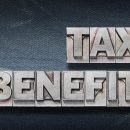The Effect of the CARES Act on Retirement Plans

CARES Act
The Coronavirus Aid, Relief, and Economic Security (CARES) Act came into effect on March 27, 2020, to deal with the economic downturn caused by the COVID-19 virus. This $2 trillion relief package was introduced as a part of other efforts to overcome health and economic distress caused by the global pandemic. The purpose of this act is to offer prompt support to workers, families, and small businesses while focusing on the preservation of jobs.
The Effect of CARES Act on retirement plans
Along with other ways of economic assistance, retirement plans have also been positively impacted by the CARES Act.
Here are some changes that have impacted retirement plans:
- Increased loans on 401(k) accounts and extension of the loan repayment period
Investors were earlier allowed to get a loan against their 401(k) accounts or other defined contribution plans. The loan limit was either a maximum of $50,000 or 50% of the money was put into the account, whichever was less. This loan limit has now been increased under the CARES Act. It is now either a maximum of $100,000 or 100% of the amount is put into the account by the investor, whichever is less. However, these enhanced limits will be only applicable for loans disbursed between March 27 and September 23, 2020.It is not advisable to take up a loan from retirement plans to meet short-term requirements. However, with the global pandemic, it may be a better option than opting for a personal loan or using a credit card. The reason is that funds from the loan are not taxed in line with the criteria of normal income slabs. Whereas, usual withdrawals are taxable. In addition to this, loan funds from 401(k) plans are put back into the plan itself upon repayment. On the other hand, it is quite problematic to restore funds in the plan after withdrawal.The repayment period for such loans is normally five years. However, this act has increased this repayment period to six years. This implies that the loans, whose repayment period includes 2020, will receive an additional year for their repayment. This relief will allow people to have a higher inflow of cash as they will not be required to repay the loan out of their salary this year. Sustainable cash flow at this time of crisis is a necessity for everyone.
- Suspension of required minimum distributions (RMDs)
This act has led to the suspension of all RMDs associated with the retirement accounts for 2020. The investors will not be required to make any minimum withdrawals from their retirement accounts like 401(k)s, 403(b)s, and 457(b)s accounts as well as inherited retirement accounts. This is being considered one of the most significant changes that has been brought by the CARES Act. It is also important to note that the RMDs for 2020 will not be carried forward to 2021. This implies that the investor will not be required to undertake double RMDs in 2021. This measure will allow retired people to desert their retirement accounts for this year. With instability in both the market and the economy, several retirement accounts are likely to have faced a decline in their value. This year of abandonment will give them time to recover those losses. - Withdrawal exemptions
The CARES Act has enlisted that certain tax exemptions will be made for the withdrawals made from the retirement accounts for issues motioned by the COVID-19 virus. The withdrawals that will be eligible for this exemption will be those made between January 1 and December 31, 2020. However, the withdrawal should only be made if the individual or their partner is diagnosed with coronavirus. This exemption will also be applicable for withdrawals used to meet the financial crisis caused by the pandemic, like the increased costs of quarantine, unemployment, reduction in salaries, etc. Investors below the age of 59.5 will be allowed to make a distribution of a maximum of $100,000 without a penalty tax of 10%. A simple statement from the investor will be enough to maintain that he or she meets the conditions needed for this exemption. The repayment period for this distribution will be three years. In addition to this, the withdrawn funds will be taxed over the next three years, while the investor can also choose to pay the entire tax during 2020. Meanwhile, individuals must ensure that they are capable of repaying the loan over the coming years. Such loans from individual retirement accounts (IRAs) without a penalty will come as a relief for adverse circumstances caused by the coronavirus. The loan funds can be utilized to meet short-term needs and will be eventually repaid so that the long-term retirement funds remain intact. - Modifications in charitable contributions
Investors will be allowed to make a qualified charitable distribution (QCD) of a maximum of $100,000 from their retirement accounts for qualified charities in 2020. Though the act has suspended RMDs for this year, these distributions will not counterbalance the RMDs even if they have not been made. The investor will not be liable to pay any tax on distributions made for charitable contributions. Furthermore, a novel above-the-line deduction for charitable contributions has been established by the act. The deduction will be worth a maximum of $300. This additional deduction will be most beneficial to those who do not itemize their tax deductions. Finally, the limit of cash gifts to public charities has been increased from 60% to 100% of adjusted gross income (AGI) in 2020. - Extension of 2019 contribution cut-off date
The CARES Act has extended the cut-off date for 2019 contributions that had to be made to IRAs and health savings accounts (HSAs). The new deadline is now July 15, 2020.
To sum it up
The COVID-19 pandemic has had a global impact. Its effect is not limited to the physical but has extended to financial and economic realms too. Amid this stress and panic, the CARES Act has offered several relief measures to people. Investors can benefit from the various policies related to retirement accounts in the CARES Act. It is, however, suggested to take assistance from experienced and knowledgeable Financial Advisor to reap the most from the benefits offered under this act.










